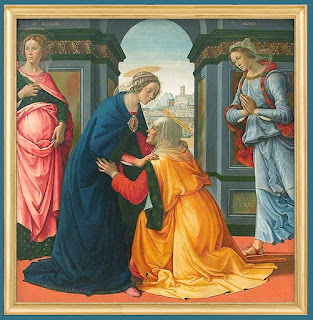Jun 1 Sun
When Jesus goes to heaven, what does He expect us to do?
The Ascension of Christ is connected to the Christian apostolic mission.
While they were gazing into Heaven as He ascended, two men in white robes appeared to them. They said, "Men of Galilee, why do you stand looking into Heaven? This Jesus, who was taken from you into Heaven, will come in the same way as you saw him go into Heaven" (Acts 1:11). Like the Apostles, we are partly perplexed and partly saddened by his departure. It is not easy to get used to Jesus' physical absence. It makes me think that out of an excess of love, He has remained with us even after He has gone. He has ascended to Heaven, and at the same time, He gives Himself to us as our nourishment in the sacred host. However, we miss his human speech, his actions, his gaze, his smile, and his acts of kindness. We long to see him closely again. How can we not miss his presence?
The angels told the Apostles that it was now time for them to begin their task, that there was no time to waste. With the Ascension, Jesus' earthly mission comes to an end, and ours as his disciples begins. Jesus intercedes for us before his Father: "I do not pray that you should take them out of the world" (John 17:15), out of our rightful place in society, out of our jobs or families, "but that you should keep them from the evil one." Jesus wants each of us to remain in our place, sanctifying the world from within, improving it, and offering it to God. Only then will the world be a place where human dignity is valued and respected, a place where people live in true peace, a peace closely linked to God.
As Jesus ascends to Heaven, He sends us out as his witnesses to the whole world. Our responsibility is great because being a witness of Christ means that we should behave according to his teachings, reminding others of Jesus and his most lovable personality.
Those we live and work with, those we come in contact with, should find us loyal, sincere, joyful, and hardworking. We should act as people who fulfill their duties honestly and live as children of God in the ups and downs of each day. The ordinary norms of courtesy, such as how we greet others, our cordiality, and spirit of service, should not be merely conventional and superficial for us. Instead, they should be the result of charity and a genuine interest in others.
We find Jesus in a special way in the Tabernacle. Let us turn to him there, even if we cannot physically go but only in our hearts, and ask for his help. Let us assure him that he can rely on us to spread his teachings wherever we go.
The Apostles returned to Jerusalem with Mary and awaited the coming of the Holy Spirit. Let us also prepare for Pentecost by staying close to our Lady.























